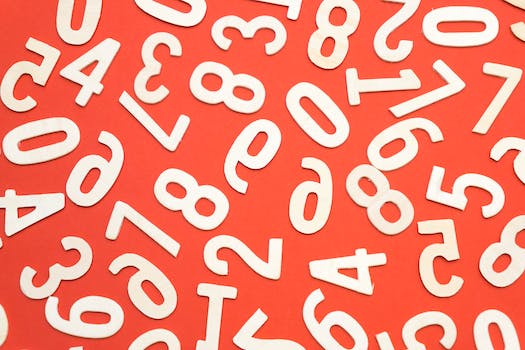-
Table of Contents

Numbers are an integral part of our everyday lives, from counting the money in our wallets to measuring the ingredients in a recipe. But have you ever stopped to think about the origins and significance of numbers? In this comprehensive guide, we will delve into the A to Z of numbers, exploring their history, symbolism, and practical applications.
The History of Numbers
Numbers have been used by humans for thousands of years, with evidence of counting systems dating back to ancient civilizations such as the Sumerians and Egyptians. The concept of zero, a fundamental building block of modern mathematics, was first introduced by Indian mathematicians in the 5th century CE. Over time, numbers evolved from simple counting tools to complex mathematical systems that underpin our understanding of the universe.
Numerology: The Study of Numbers
Numerology is the belief in the mystical significance of numbers and their influence on human life. According to numerologists, each number has its own unique vibration and symbolism that can reveal insights into a person’s personality, strengths, and challenges. For example, the number 1 is associated with leadership and independence, while the number 7 is linked to spirituality and introspection.
Practical Applications of Numbers
Numbers play a crucial role in various fields, from science and technology to finance and economics. In physics, numbers are used to quantify physical phenomena and formulate mathematical models of the universe. In finance, numbers are essential for calculating profits, losses, and investment returns. In everyday life, numbers help us navigate the world around us, from reading a bus schedule to following a recipe.
Case Studies: The Power of Numbers
One striking example of the power of numbers is the Fibonacci sequence, a series of numbers where each number is the sum of the two preceding ones. This sequence appears in nature, from the spiral patterns of sunflowers to the branching of trees, highlighting the inherent mathematical order in the natural world. Another example is the Golden Ratio, a mathematical constant that appears in art, architecture, and design, creating aesthetically pleasing proportions.
Statistics: Making Sense of Numbers
Statistics is the science of collecting, analyzing, and interpreting numerical data to make informed decisions. In fields such as medicine, economics, and sociology, statistics play a crucial role in identifying trends, patterns, and correlations in data. For example, epidemiologists use statistics to track the spread of diseases, while economists use statistics to forecast economic trends.
Q&A: Exploring the World of Numbers
- What is the significance of zero in mathematics?
- How do numerologists interpret the meaning of numbers?
- What are some practical applications of numbers in everyday life?
- Can you provide examples of famous mathematical sequences?
- How do statisticians use numbers to make sense of data?
Conclusion
In conclusion, numbers are not just abstract symbols but powerful tools that shape our understanding of the world. From the ancient origins of counting systems to the modern applications of mathematics and statistics, numbers are an essential part of human civilization. By exploring the A to Z of numbers, we gain a deeper appreciation for the beauty and complexity of numerical systems.






